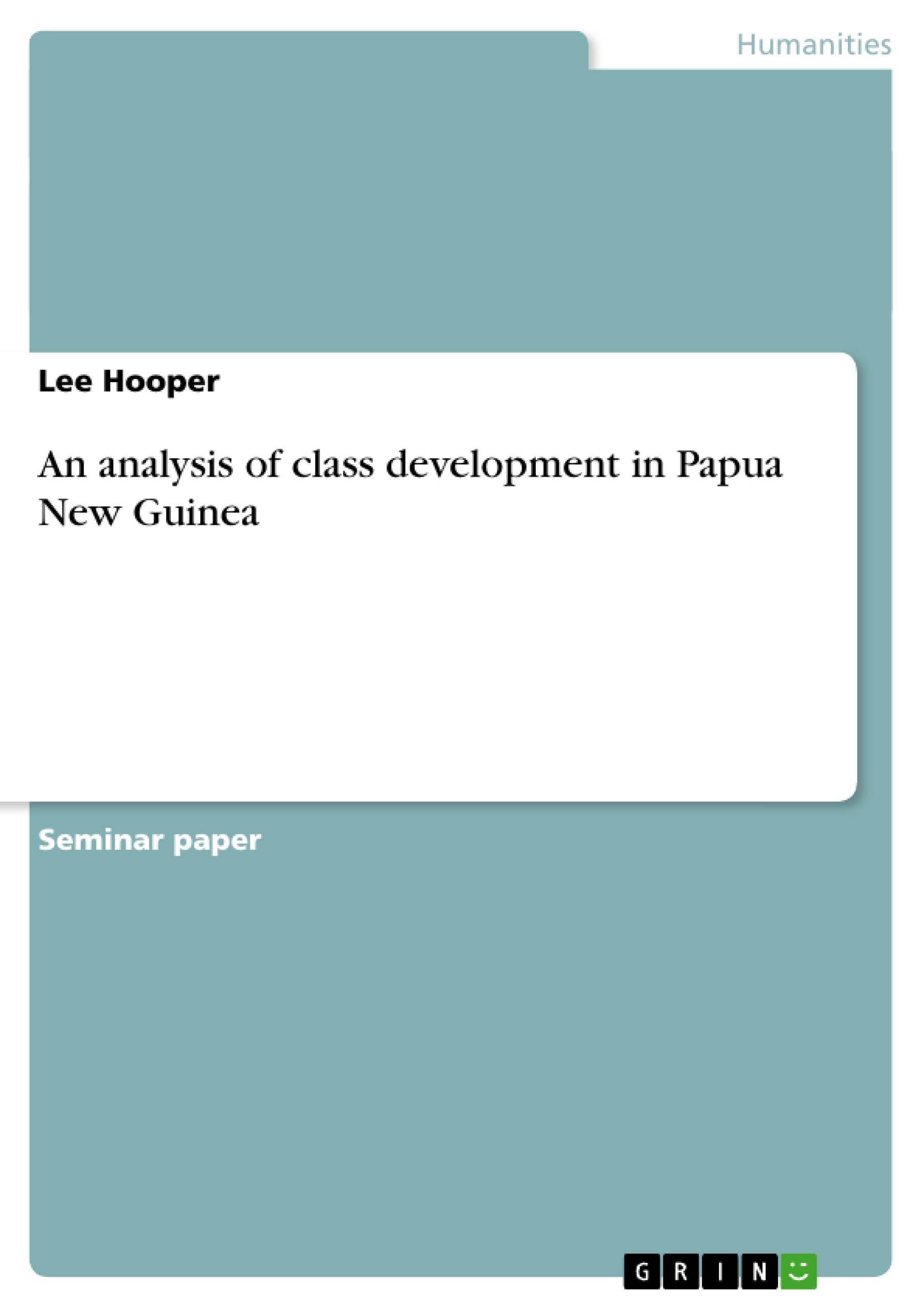Excerpt
This essay will outline the process of class formation within Papua New Guinea (PNG) and show that, although its developments are unique to the region, they are in line with the general capitalist trend of class development. This will be done by outlining a general definition of class in relation to Marxist ideology and then applying this viewpoint to the historical development of PNG in relation to capitalism and class formation. It will show the major influence that the middle class had in the promotion of class identity, particularly normalising class differences. The essay ends with a reflection on middle class values in PNG and how they influence, but are nevertheless, part of the adaptive nature of capitalism. It is concluded that from a Marxist perspective, understanding class formation in PNG is tantamount to understanding class theory in general.
In Marxist theory, class is primarily defined as consisting of the proletariat and bourgeois, or the working class and the capitalist upper class (Marx, 1954, pp.170-1). This class division is specific to the economic climate, whereby capitalism is the main driving economic power and the relation of production is between the capitalist and capital, and the worker and the capitalist. The means of production are owned by the capitalist, and since the worker is reliant on selling their labour power, there begets a dependent relationship. The petit bourgeois, or middle class, is a derivative of the capitalism process, whereby there exists a class that relatively owns their own means of production and has vested interests in maintaining the capitalist system. This class includes those who are self employment and run their own small scale business (Marx, 1954, pp73-74). The stratification of society - through control of the means of production was postulated by Marx, in the theory of historical materialism, to be the source of inequality (Marx, 1954, p.26). The inequality of society is based on economic differences and is maintained and normalised by the capitalist ideology.
The formation of class, in relation to a modern day analysis of PNG, can then be seen as specific to the epoch of capitalism. Preceding, and alongside this, was the inequality of primitive communism, which manifested itself through the egalitarian system. Class division stands in relation to the way in which inequality is manifested in relation to ownership and authority (Lenin, 1969, pp.22-24). In Marxist theory, it is clear that the class distinctions of capitalist and worker in PNG are relevant only to the time that a capitalist economy was present in the country. However, in order to gain a better understanding on the current conditions of class formation, it becomes necessary to look at the preceding economic relations.
Primitive communism in PNG was characterised by egalitarianism, where power was situated in chiefs or ‘Big men’. However, chieftain power readily shifted when new alliances were formed. Differences in material wealth were related to one having more of certain products, such as food, property, and ritual knowledge, than there counterpart (Gewertz & Errington, 1999, p.2). The primary means of production lay in subsistence agriculture with barter being utilised as the means of trade (Connell, 1997, pp.43-44).
Colonialism came relatively late in PNG, with the carving up of the land occurring in the mid nineteenth century by the Dutch, Germans, and British Imperialist powers (Romaine, 1992, pp.11-16). The coastal areas were the first to come in to contact with the foreign powers, with the remote highlands being moved into much later. During World War I and II, PNG was administered by the Commonwealth of Australian. Shortly after this PNG formally become an independent state (Connell, 1997, p.5). During this colonial period, which lasted a relatively short time, Christian missionaries heavily influenced both politically and morally, the minds of the PNG people (Robbins, 2004, p.41).
[...]
- Quote paper
- Lee Hooper (Author), 2011, An analysis of class development in Papua New Guinea, Munich, GRIN Verlag, https://www.grin.com/document/233132
Publish now - it's free






















Comments